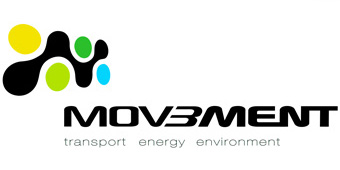As a start-up, our active projects list is small, but its right at the leading edge of the industry. Right now we’re helping to evaluate a trial of an electric bus; we’re running a government program that tests promising new truck technologies that could deliver fuel savings for operators and emissions reductions for society; and we’re testing new fuels with trucks and trains in the field.
On the advocacy front, Mark is also coordinating a national Freight Working Group that includes the biggest names in Australian logistics, with the aim of doubling transport energy productivity (2XEP) by 2030. He is also working in a similar national working group for passenger transport.
Other key projects our people have been involved with include:
- Eligibility rules for heavy vehicle incentives: a study into the most effective and relevant criteria on which to base financing incentives to increase the uptake of low emission trucks and buses (for Clean Energy Finance Corporation).
- Low Emission Vehicle Strategy for the ACT government: exploring policy and program options to increase the uptake of LEVs to meet ACT’s emissions reduction targets.
- Energy efficiency information resources for the logistics sector: fact sheets, how-to guides, and a web tool for matching energy efficiency opportunities to supply chain and logistics operators. This project was funded by the Energy Efficiency Information Grants (EEIG) program.
- Electric Vehicle Roadmap: Independent assessment of the prospects, extent and timing of electric vehicle adoption in Australia (for Sunshine Coast Council).
- Fuel efficiency standards for light vehicles in Australia: Analysis of the feasibility, benefits, and main barriers to introducing ambitious fuel efficiency standards for light vehicles (for ClimateWorks).
- LNG Market Assessments: various studies examining the potential market for natural gas in heavy transport in Australia. The objectives of different studies included: quantifying the future market size, identifying target groups, modelling pricing options, evaluating refuelling locations, and compiling an inventory of vehicles (for various clients).
- Outlook for the future diesel market in Australia: Lead author of several studies examining how fuel efficiency will affect future fuel demand in the heavy road transport, rail, shipping and other diesel-using sectors (for Queensland Energy Resources).
- Outlook for Aviation fuel: Lead author of a study examining how fuel efficiency may affect future fuel demand in Australian aviation.
- Review of the sustainability of biofuels in Australia: Lead author in a study reviewing major environmental and economic implications of biofuel production.
- GHG Strategy for Road Freight: Led a study for the NSW Government that identified and evaluated opportunities for GHG reductions in road freight operations. (Transport for NSW)
- GHG Strategy for Rail Freight: Led a study that identified opportunities for GHG reductions in rail freight. The assessment focused on both infrastructure and institutional barriers to reducing emissions, and possible actions for government to reduce these. (Transport for NSW)
- FleetWise Heavy Vehicle Program: Designed and facilitated a program to establish fuel efficiency benchmarks for small and medium fleet operators to compare their performance (for NSW Department of Environment & Climate Change).
- EEO for Transport: Co-author of several information resources directed specifically at transport companies in the EEO program (for Department of Industry)

